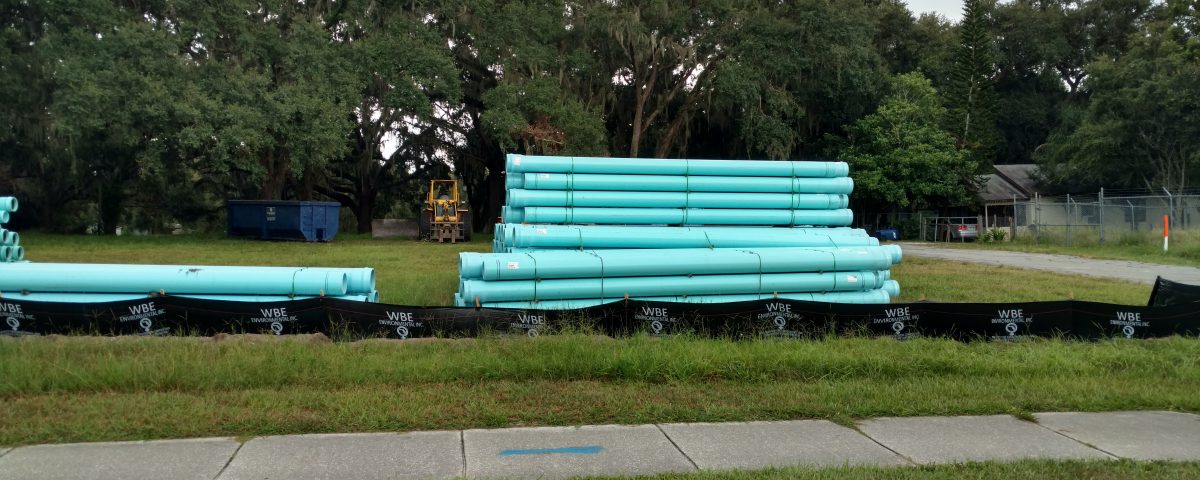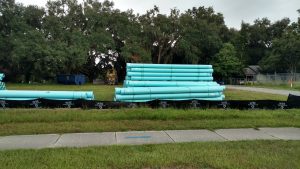District partners with Mascotte for water main replacement project

Pipes and materials are staged for the start of water main replacement along State Road 50 in Mascotte.
MAITLAND, Fla., Sept. 19, 2018 — Construction is underway in Mascotte to replace about 2.5 miles of aging water main. The St. Johns River Water Management District provided

Pipes and materials are staged for the start of water main replacement along State Road 50 in Mascotte.
$500,000 for the project, as part of a Rural Economic Development Initiative (REDI) cost-share grant. The project will be constructed in two phases and help prevent water loss caused by breaks in the water main.
“Our cost-share program is an incredible tool for supporting local projects that promote sustainable use of Florida’s water,” said St. Johns River Water Management District Executive Director Dr. Ann Shortelle. “Collaborative funding for projects like this has allowed us to put more projects in the ground for a greater benefit to our natural systems.”
“We are very excited to partner with the District on this project. It is collaborative partnerships like this that ensure the potable water supply is efficiently protected and delivered to the public,” said Public Services Director Larry Walker. “The City of Mascotte looks forward to future partnerships with the District to provide safe potable water supply.”
Work will occur along the south side of State Road 50, replacing pipes between Palmwood Avenue and Groveland Farms Road. Given the condition of the existing piping and their susceptibility to breaks, the project is expected to reduce the city’s water losses.
The first phase will replace about 1.4 miles of water main, with work expected to be completed in December 2018. The total estimated construction cost is $1.2 million.
The District offers several cost-sharing programs throughout the year for projects that assist in creating sustainable water resources, provide flood protection and enhance conservation efforts. In general, a REDI community is economically disadvantaged with an employment base dominated by traditional agriculture or resource-based industries and a population of 25,000 or less. REDI communities may also be unincorporated federal enterprise communities, or an incorporated rural city that is not located in a designated rural county.

